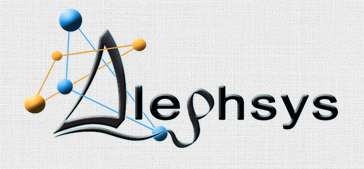Recent publications
News
Paper: Influence of trust in the spreading of information.
-
Mapa igualat per densitats del vot independentista a les eleccions al Parlament de Catalunya 2015.
Highlights
-
Paper: Accurate and scalable social recommendation using mixed-membership stochastic block models.
-
Paper: Inferring propagation paths for sparsely observed perturbations on complex networks.
-
Challenge: Disease module identification by adjusting resolution in community detection algorithms.
Welcome
Recent technological advances have boosted our ability to gather information on a variety of complex processes occurring at scales from the cellular to the planetary. At a cellular scale, the number of unicellular organisms whose genome has been completely sequenced has grown exponentially in the last few years. For each of these organisms, we know with remarkable accuracy the exact sequence of nucleotides in their DNA---in other words, we know their biochemical "blueprint." Unfortunately, our understanding of cellular processes has not grown proportionally. For example, experimental evidence demonstrates that only 20% of the genes in yeast are essential for survival, but the reasons why these genes are essential while others are not are not generally known.
Similarly, at the scale of global socio-economic systems, despite a fast increase in computational capabilities to process global-scale information, our predictive power has not increased at the same pace. For example, nowadays it is possible to track financial and commercial relationships between companies, but when a global crisis develops little is known about what will be the ultimate consequences or about which countries will be most affected.
One of the reasons behind the disparity between the amount information available to us and our understanding of these problems is that in complex systems, such as cells and economies, individual components interact with each other through complex networks of interactions that are neither totally regular nor totally random. The reason why real-world networks are non-trivial is that any bias, however small, in the way components establish connections gives rise to structural correlations. This makes understanding complex systems challenging but, at the same time, it means that each network contains, hidden within its structure, important cues about how the system operates and evolves.
The goal of our research is to develop a theoretical framework and computational tools that will help us, for example, understand a certain cellular function from limited knowledge about the interactions between the proteins involved; or uncover novel gene-disease associations from the relatively few associations we already know; or determine which interactions in an economy are the most critical to avoid systemic crisis.
Mediterranean School of Complex Networks

In the last decade, network theory has been revealed to be a perfect instrument to model the structure of complex systems and the dynamical process they are involved into. The wide variety of applications to social sciences, technological networks, biology, transportation and economic, to cite just only some of them, showed that network theory is suitable to provide new insights into many problems.
Read More
PLEXMATH Project

Complex systems are made up by many interacting, non-identical components, whose individual dynamics are usually governed by simple rules that operate at multiple levels. The structure of interactions between the system’s components is defined through networks, the study of which represent one of the most fascinating topics in modern science. Network science has revolutionized our classical understanding of physical, biological, social and technological systems.
Read More
Algorithms embedded in physical systems Lab

ALEPHSYS: Algorithms embedded in physical systems.
- Physics of complex networks
- Neural networks
- Multiplex networks
Read More
Science & engineering of emergent systems Lab

SEES: Science & engineering of emergent systems.
- Complex networks
- Systems biology
- Science of science
- Socio-physics
Read More


